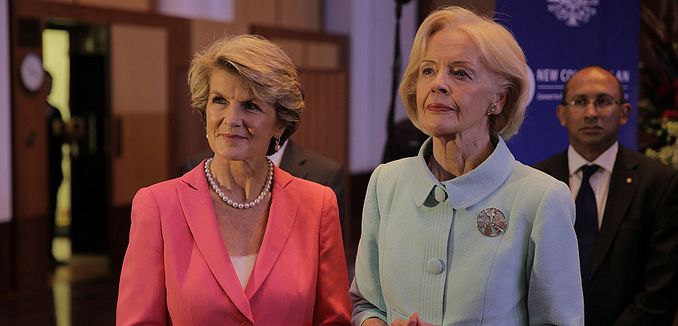According to a news report published Sunday, Australian Foreign Minister Julie Bishop is slated to meet with Arab ambassadors in the wake of boycott calls in retaliation for Australia’s recent decision to stop using the term “occupied” to describe territories captured by Israel in 1967.
Australia has been warned of possible Arab trade sanctions after last week’s move, which Attorney-General George Brandis said was made because the term “occupied” carried pejorative implications and was neither appropriate or useful.
But the decision has sparked fury in the Arab world, and on Thursday 18 diplomats from countries including Egypt, Saudi Arabia and Indonesia protested to Australia’s Department of Foreign Affairs in Canberra.
According to the report, in response to the protests and a boycott threat, Australian Prime Minister Tony Abbott acknowledged that a meeting between Bishop and “some of the ambassadors” would take place “in a couple of days’ time.” Abbott didn’t sound overly concerned about either the objections or the threats, noting that Australia still supported a two-state solution and was committed giving over $50 million in aid to the Palestinians this year. He added, “People trade with us because we are a good trading partner… Nothing that has happened in the last couple of days could detract from that.”
Earlier this month, Australian Attorney General George Brandis stated that Australia would no longer use “occupied” to describe eastern Jerusalem. Last week, Australia’s ambassador to Israel, Dave Sharma, clarified further that Australia viewed the West Bank similarly and would not use “occupied” to describe it anymore. In an interview with the Times of Israel in January, Bishop explained, “I don’t think it’s helpful to prejudge the settlement issue if you’re trying to get a negotiated solution. And by deeming the activity as a war crime, it’s unlikely to engender a negotiated solution.” Rather, the issue of the territories should be “determined in the course of … peace talks.”
[Photo: Department of Foreign Affairs and Trade / WikiCommons ]




